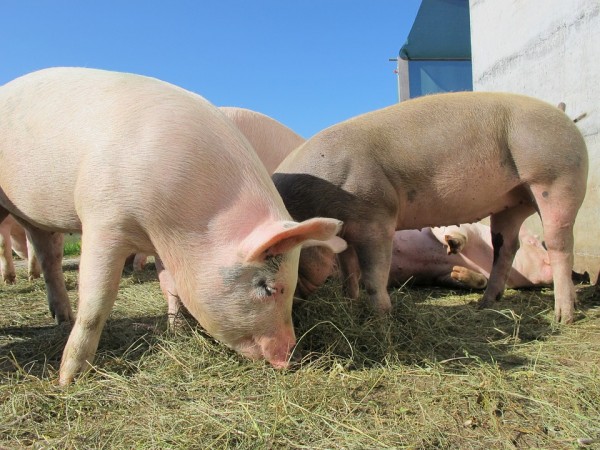By Krisana Estaura, | April 13, 2017

"There are striking similarities between pigs and humans, for example our DNA and digestive track,” says Courtney Stanton, vice president of the Bioscience Group for Smithfield
The world's largest pork producer Smithfield Foods is planning to sell pig organs for human transplant purposes, and it has the U.S. government backing the idea.
In an attempt to fill the void for people waiting for transplants amid a lack of donors, Chinese firm Smithfield is looking at the market for pig-human organ transplant by setting up a separate bioscience unit to sell the animal's parts.
Like Us on Facebook
According to Reuters, routine pig-human organ transplants are years away, but recent scientific advances are breaking down barriers that frustrated prior attempts.
"Our bread and butter has always been the bacon, sausage, fresh pork - very much a food-focused operation," Courtney Stanton, vice president of Smithfield's new bioscience unit, told Reuters in an exclusive interview.
The idea is part of Smithfield's plan to expand its role in supplying pig parts for medical use.
Smithfield is a $14 billion unit of China's WH Group. It is the only pork producer working with health-care companies including Abbott Laboratories, Medtronic, and United Therapeutics Corp.
To explore the possibility of pig-human organ transplant, it has joined a public-private tissue engineering consortium funded by an $80 million grant from the U.S. Department of Defense.
People diagnosed with organ failure resort to transplant when there are no other treatment options.
Unfortunately, the United Network for Organ Sharing estimates that due to a lack of donors, 22 people on average die every day while waiting for a transplant.
To help close the critical gap, using animal parts as a substitute has been the subject of studies for many years.
"There are striking similarities between pigs and humans, for example, our DNA and digestive track," Courtney Stanton, vice president of the Bioscience Group for Smithfield told Bloomberg in an email.
Additionally, a membrane from hog intestines has been used to create heparin, a human blood thinner that prevents clotting, she said.
-
Use of Coronavirus Pandemic Drones Raises Privacy Concerns: Drones Spread Fear, Local Officials Say

-
Coronavirus Hampers The Delivery Of Lockheed Martin F-35 Stealth Fighters For 2020

-
Instagram Speeds Up Plans to Add Account Memorialization Feature Due to COVID-19 Deaths

-
NASA: Perseverance Plans to Bring 'Mars Rock' to Earth in 2031

-
600 Dead And 3,000 In The Hospital as Iranians Believed Drinking High-Concentrations of Alcohol Can Cure The Coronavirus

-
600 Dead And 3,000 In The Hospital as Iranians Believed Drinking High-Concentrations of Alcohol Can Cure The Coronavirus

-
COVID-19: Doctors, Nurses Use Virtual Reality to Learn New Skills in Treating Coronavirus Patients







